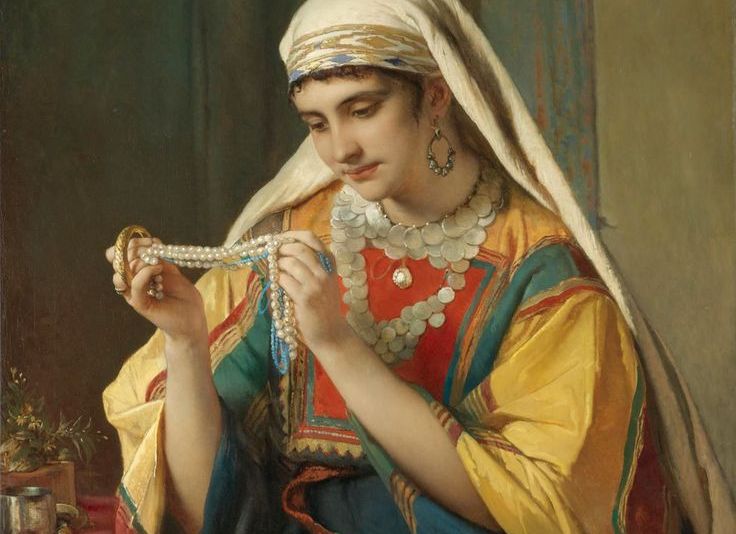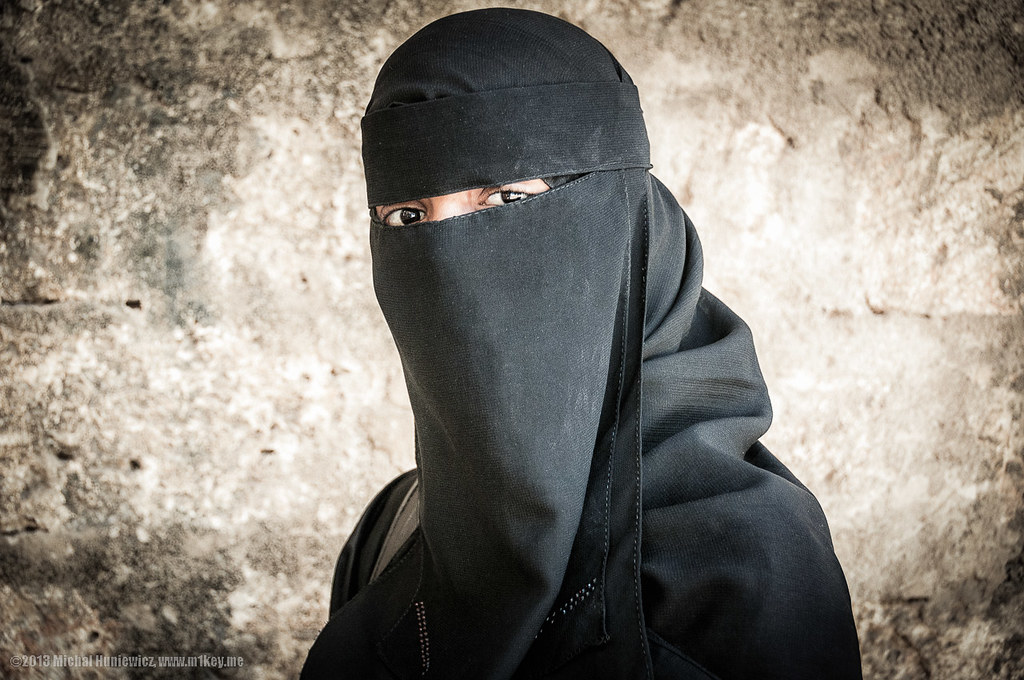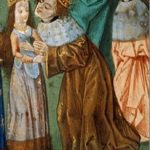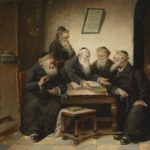| Name: | Amina bint Wahb |
| Clan/Origin: | Banu Hashim of Quraysh |
| Father: | Wahb ibn ‘Abd Manaf |
| Mother: | Barrah bint Abd al-Uzza |
| Birth: | ca. 554 |
| Status: | Died in Time of Ignorance |
| Death: | 577 |
| Other: | Muhammad’s mother |
Very little is known about Amina bint Wahb. She was the granddaughter of the progenitor of the Zurah clan of the Quraysh tribe. Orphaned when they were very young, she and possibly a sister Hala were taken into the household of her paternal uncle, Wuhayb, and into the care of his wife Aliyya. (Hala may not have existed and may just be a product of confusion.) When Abd al-Muttalib was looking for a wife for his son Abd Allah, he came to Aliyya, who was his first cousin, the daughter of Muttalib, in whose household he’d lived for a good part of his childhood. In the end, Abd al-Muttalib arranged for the orphan Amina to marry Muhammad while he married his cousin Aliyya’s daughter (also called Hala) himself. ‘Abd Allah was apparently well-matched to the orphan. Father and son married on the same day and shared a marriage feast.
Their wedding present from Abd al-Muttalib was the Ethiopian slave Baraka (later Umm Ayman). Abd Allah was just starting out in life as a caravan trader. There’s every reason to believe that despite the general “genteel poverty” of his initial life that he’d eventually have reached a respectable level of wealth. However, he died almost immediately after their marriage, leaving behind an impoverished and pregnant widow.
Amina bore Muhammad about six months later. A recently freed slave named Thuwayba was Muhammad’s first nurse, so she had some money to pay for that. Amina sent Muhammad out of the city to be nursed by the Bedouins in the desert because epidemics made life in towns, especially trading towns, dangerous for infants. His Bedouin nurse was Halima al Sa’diya At the age of four, Muhammad was returned to his mother.
It’s recorded that Amina then took Muhammad to Yathrib (Medina), probably in 575. The reasons are given as either to visit her relatives or to visit ‘Abd Allah’s grave. I don’t know of any relatives she might have had in Yathrib, unless her father’s second wife had children by him and she was visiting unrecorded half-siblings and their families, or unless she was visiting ‘Abd Allah’s grandmother’s family, for some reason.
Even odder is the story of Amina’s death. It’s agreed that Amina was buried in al-Abwa’. There aren’t a lot of ahadith about this, but according to tradition, Muhammad passed by al-Abwa’ on his way to the Battle of Badr and said his mother was buried there. But Amina supposedly only spent a short time in Yathrib in 575, and she supposedly died in 577. If she died there, then why was she there? The only possible reason would be if one of the dates is wrong or if Amina remarried someone in al-Abwa’ but died soon after that unrecorded marriage.
According to Islam, everyone who died as a polytheist in the Time of Ignorance was doomed to burn in hell. There are two ahadith that say that Muhammad’s parents are in hell:
Anas said that a man said: “O Messenger of Allah, where is my father?” He said: “In Hell.” When he turned away he called him back and said: “My father and your father are in Hell.”
Muslim 203
Abu Hurayrah said: The Messenger of Allah (peace and blessings of Allah be upon him) said: “I asked my Lord for permission to pray for forgiveness for my mother, but He did not give me permission. And I asked Him for permission to visit her grave, and He gave me permission.”
Muslim 976
However, there was a later teaching by Muhammad that everyone goes to hell for a while but can then go to the Garden if they’ve earned it once they’ve burnt off their sins. So that doesn’t fully disqualify them from reaching the Garden. Some narrations claim that Muhammad claimed that his parents were briefly revived from the grave, sat up, accepted Islam and then died again. This would fit with Muhammad damning Khadija’s other sons to Hellfire but saying that his son with her who died before he became a prophet is in the Garden.
When Amina died, Muhammad reverted to the care of his grandfather.






